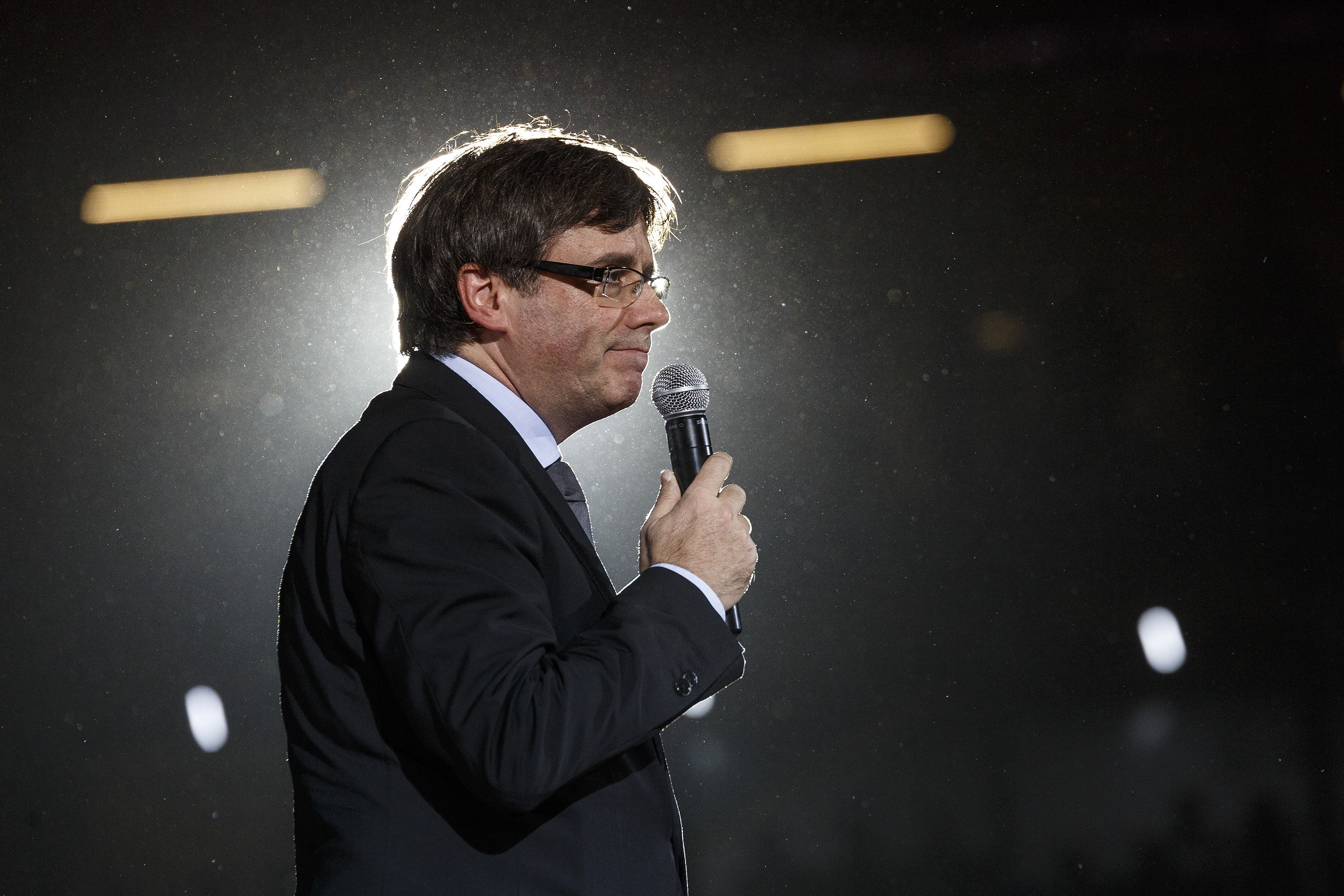After sending warnings to around a thousand public officials, sending Civil Guard agents to media outlets and to confiscate posters, leaflets and referendum documentation from printers and courier firms, the Spanish state's operation to block the independence referendum turned this morning to aim straight for the Catalan president, Carles Puigdemont. That's the evaluation from the Catalan government of this morning's Civil Guard operation in Girona, the northern town where Puigdemont was mayor immediately before becoming president.
Bit by bit the circle is closing. The proceedings opened this morning fall within the so-called Agissa affair. The Spanish Civil Guard has undertaken some fifteen searches in Girona province within the framework of the case, linked to alleged crimes of fraud and disloyal administration in the management and adjudication of the water supply. Specifically, the investigation is looking at a supposed diversion of 15 million euros of profit from the private part of the local water company and was prompted by a report from the Tax Agency ordered by the judge in the 3% affair. The 3% affair was an alleged scheme where members of the Catalan government scraped 3% off of budgets awarded for public works contracts. Agissa, the water company serving Girona, Salt and Sarrià de Ter, is 80% private and 20% public. No actions are being taken against the public part.
At 9:20am the offensive came a little closer to the president when a lieutenant of the judicial police presented themselves at Girona City Hall, the council Puigdemont led until January 2016. A large part of the information the lieutenant asked for, according to the mayor, Marta Madrenas, was either public or previously sent to investigators.
"Interested use"
The case comes from the time PSOE (Spanish Socialist Worker's Party) controlled the local council. Madrenas today highlighted that the investigation comes from the annual audits ordered by Puigdemont whilst he was mayor. However, the link between the corruption investigation and the president has happened automatically.
"I have to confess that we were all waiting to see which day they would enter Girona City Hall and it's been today," the mayor said. She's not the only one to publically express an unease circulating every stronger in pro-independence circles.
Even the CUP (Popular Unity Candidacy), who presented the complaint that opened the case in 2015 expressed the same disquiet. "It doesn't seem innocent to us" said CUP Catalan Parliament deputy Benet Salellas, who suggested it might be an "interested use" of the investigation twelve days before the referendum.
The use of legal cases and even complaints and false reports has been the order of the day in recent years for maximally discrediting leaders of the independence movement. It is not, therefore, a new strategy. Independence supporters knew they would have to face a "repressive" strategy incorporating all of the state's means, "permitted or not".
"They've innovated little in their modus operandi", said the minister for the Presidency, Jordi Turull, in a press conference after a government meeting during which he didn't hesitate to accuse Spanish prime minister Mariano Rajoy's executive of trying to "destroy [Puigdemont's] reputation and honour".
Nonetheless, the fury of the offensive against the referendum even surprises the independence movement's strategists, who are baffled by actions like sending the Civil Guard to media offices and who confess they didn't expect moves like giving the powers of judicial police to local forces.
Let's not discount them arresting Puigdemont
The intensity is such that they say that now no response would surprise them. "Let's not discount them arresting Puigdemont before 1st October", said a leading member of the independence movement's leadership openly and without worrying.
The Spanish state has already intervened in the Catalan government's finances with a simple agreement of the cabinet, an agreement now before the Supreme Court after a Catalan government appeal; the more than 700 mayors who have supported the referendum have started to parade before the Public Prosecutor this morning; and the Civil Guard's searches are multiplying, aside from the enthusiasm of local police to act against the hanging of posters.
The referendum campaign, however, moves forward. And it does so with large-scale acts all around Catalonia, even as attendees and promoters are often identified by police, whilst the Catalan government insists that it's prepared to guarantee the vote take place, regardless of what actions the police may take. "For each repressive action, a democratic response. For each obstacle, a solution", repeated Turull this lunchtime, hours after the Civil Guard seized notifications alerting people they had been chosen to work at polling stations from a couriers in Terrassa.
There is little more than 10 days to go to the referendum. The Spanish state confesses that it's been overwhelmed by the Catalan government's strategy when explaining the referendum to the world, which has seen it forced to reactivate its diplomatic offensive, but this hasn't stopped it unfurling an unusual forcefulness, which has crossed red lines like the freedom of the press or the violation of correspondence. "We're expecting anything, now," the Catalan government says. And here, the figure of Puigdemont appears as one of the Spanish state's clearest targets.

